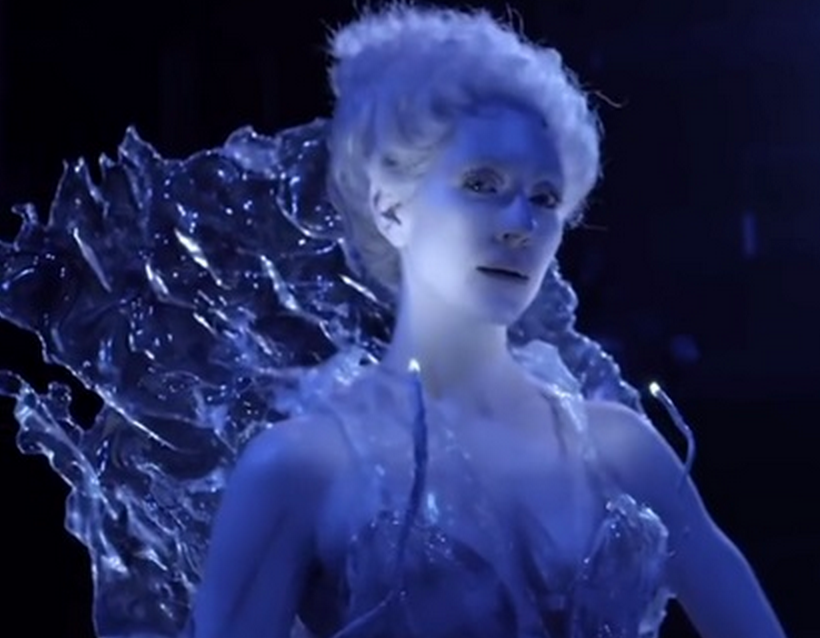 It’s that time of year, at least in the Northern Hemisphere. The days are long, the weather is glorious, and gardens are overflowing with bounty that hasn’t yet over-ripened on the vine. In short, it’s A Midsummer Night’s Dream time, that moment in the year that inspired Shakespeare’s most joyously subversive comedy. About four Athenian lovers, six amateur stage actors, and the fairies who control them during a magical night in a forest, Midsummer is an oft-quoted yet oddly underestimated meta-play about the intersection of romance, gender, identity, power, performance, and fate – ideal fodder for Hollywood adaptations, in other words, though the quality of those adaptations is markedly uneven. Here’s our oh-so-subjective list of the best Midsummer-inspired films; suffice it to say it doesn’t include the hamfisted 1999 adaptation starring a deer-in-the-headlights Calista Flockart, the 2001 “10 Things I Hate About You” knockoff “Get Over It,” or this winter’s buffoonishly wrongheaded “Strange Magic.” Continue Reading →
It’s that time of year, at least in the Northern Hemisphere. The days are long, the weather is glorious, and gardens are overflowing with bounty that hasn’t yet over-ripened on the vine. In short, it’s A Midsummer Night’s Dream time, that moment in the year that inspired Shakespeare’s most joyously subversive comedy. About four Athenian lovers, six amateur stage actors, and the fairies who control them during a magical night in a forest, Midsummer is an oft-quoted yet oddly underestimated meta-play about the intersection of romance, gender, identity, power, performance, and fate – ideal fodder for Hollywood adaptations, in other words, though the quality of those adaptations is markedly uneven. Here’s our oh-so-subjective list of the best Midsummer-inspired films; suffice it to say it doesn’t include the hamfisted 1999 adaptation starring a deer-in-the-headlights Calista Flockart, the 2001 “10 Things I Hate About You” knockoff “Get Over It,” or this winter’s buffoonishly wrongheaded “Strange Magic.” Continue Reading →
Archive | Theater Matters
The Tricks and Treats of ‘Cymbeline’
 “Cymbeline” may be the red-headed stepchild of Shakespeare’s plays. Theoretically, it’s got it all: a scheming queen, beheadings, mistaken identities, battlefields, magic potions, a girl passing as a boy. But with a labyrinthine plot, unaccommodating verse, and oddbot allusions to the Bard’s earlier works, it defies categorization, let alone easy analysis. Who but a director like Michael Almereyda – best known for his modish, moody 2000 adaptation of “Hamlet” starring Ethan Hawke – would dare tackle such fare?
“Cymbeline” may be the red-headed stepchild of Shakespeare’s plays. Theoretically, it’s got it all: a scheming queen, beheadings, mistaken identities, battlefields, magic potions, a girl passing as a boy. But with a labyrinthine plot, unaccommodating verse, and oddbot allusions to the Bard’s earlier works, it defies categorization, let alone easy analysis. Who but a director like Michael Almereyda – best known for his modish, moody 2000 adaptation of “Hamlet” starring Ethan Hawke – would dare tackle such fare?
I’m glad he did. Shakespearean adaptations are a dime a dozen but most are “as inspired by the play by William Shakespeare” affairs like “10 Things I Hate About You” or Baz Luhrmann’s “Romeo + Juliet” (though the former is a solid 1990s Heath Ledger vehicle). Movies that really honor the playwright’s spirit are rarer birds, and with a languid playfulness, Almereyda has made exactly that. He also has shown us that “Cymbeline” is a play whose time has come again.
Like Almereyda’s “Hamlet,” this film is set in modern times but preserves an unusual amount of Shakespeare’s original speech. It is a study in sly casting, too. With his unhappily darting eyes and small shoulders squared in a leather jacket, Ed Harris is perfect as Cymbeline, the king of a motorcycle gang – as is Milla Jovovich as his second wife, a queen so cruelly beautiful that her tiara doesn’t even seem ironic. (More than any actress of her generation, Jovovich has always seemed born to play cruelly beautiful middle-aged women.) With saucer eyes and the smoothest of skin, Gossip Boy Penn Badgley plays the skate-boarding Posthumous, Cymbeline’s favorite disciple until he falls for Imogene (Dakota Johnson), the biker king’s daughter. Though lovely in a new-millennial-doll sort of way, she widens her eyes and mealy-mouths her dialogue as if nothing more could be required of a third-generation scion of Hollywood sirens (her mother is Melanie Griffith; her grandmother, the swoony Tippi Hedren). Such reacting rather than acting works here, though, as she mostly serves as the object around which all the real action rotates. Continue Reading →
The Meta Mea Culpa of ‘Venus in Fur’
 The following is a review originally published in Word and Film.
The following is a review originally published in Word and Film.
Handily, “Venus in Fur,” which is adapted from David Ives’ Tony Award-winning play, which in turn is adapted from Leopold Von Sacher-Masoch’s 1870 novella, is about adaptation itself. As if that were not bald enough, it is also a two-person film about a woman and a man worrying over a script on a bare stage. Yet this is Roman Polanski’s finest work in decades. It hones in on elements of horror lurking in ordinary human dynamics with a lurid specificity that the director has not evinced since the drama of his personal life eclipsed his professional life more than thirty years ago.
True, “Venus” treads familiar terrain for Polanksi, who has not returned to the United States since he fled the country in 1977 after pleading guilty to charges of raping a thirteen-year-old girl. It stars Mathieu Amalric – who, with his puckish features and light dusting of facial hair, bears an uncanny resemblance to the Polish-French director himself – as writer-director Thomas auditioning Vanda, a floozy actress played by Polanski’s real-life wife Emmanuelle Seigner, for his play about a sadomasochistic relationship. But Polanski seems to be tackling this familiar terrain from a new angle: “Venus” is a superbly crafted meta-mea culpa, a strange new cinema genre that may not be for the faint of heart (don’t try this at home, kids!) but nonetheless transfixes us for its entire ninety-six minutes. Continue Reading →
